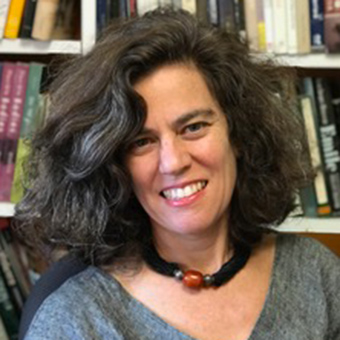Associate Professor and Director of Anthropology
Bard College
Annandale-on-Hudson, New York
[email protected]
Read Laura’s September 2021 Spotlight on Language, Culture and Justice.
My research and teaching center on themes such as sound, voice, translation/interpretation, technology and media, social suffering, affect, cultural memory, and urban public culture. My first book, “Voicing Subjects: Public Intimacy and Mediation in Kathmandu” (University of California Press, 2014), traces the relation between public speech and notions of personal interiority during a moment of political upheaval in Nepal. Recently, I have published on the use of sound for political and artistic protest. See, for example, “Sounds of Democracy: Performance, Protest and Political Subjectivity” (2018) in Cultural Anthropology.
Most closely related to the aims of the Language, Culture and Justice Hub is my current book-length project called “Interpreting the Field: On the Labor of Interpreters for UN Missions.” This project investigates the work of United Nations field interpreters, whose labor goes largely unnoticed but is utterly essential to this global organization. Unlike professional interpreters at UN headquarters, field interpreters describe constant movement through dangerous territory to translate — with little or no training — under conditions of work that unsettle their own sense of humanity.
The book seeks to answer the following questions: What is entailed, materially and affectively, in standing between the UN field officer and the local source, speaking two voices at once — neither of which is “one’s own”? What happens when the medium for circulating the voices of so-called “global citizens” is another human being whose labor is often likened to the output of a machine?
The book will detail various stages of an interpreter’s work, from an in-depth exploration of trainings for humanitarian interpreters (Geneva & Kakuma Refugee Camp), to on-site exploration of field interpretation (Nepal), to the persistent memories of interpreters who worked in the UN Office of the High Commission for Human Rights (2005-11) during and after the civil war in Nepal.
“Interpreting the Field” will explore the tensions between being a witness and a neutral conduit of voice, two opposed positions that unite in the body of a field interpreter. At its broadest level, Interpreting the Field explores historical and cultural connections between the invisibility of UN interpreters’ labor and the bureaucratic ideals of transparency and global citizenship, asking how these ideals are embodied, or not, in the day-to-day work of UN field missions.
My first publication based on this project will be coming out shortly in the journal Humanity.
